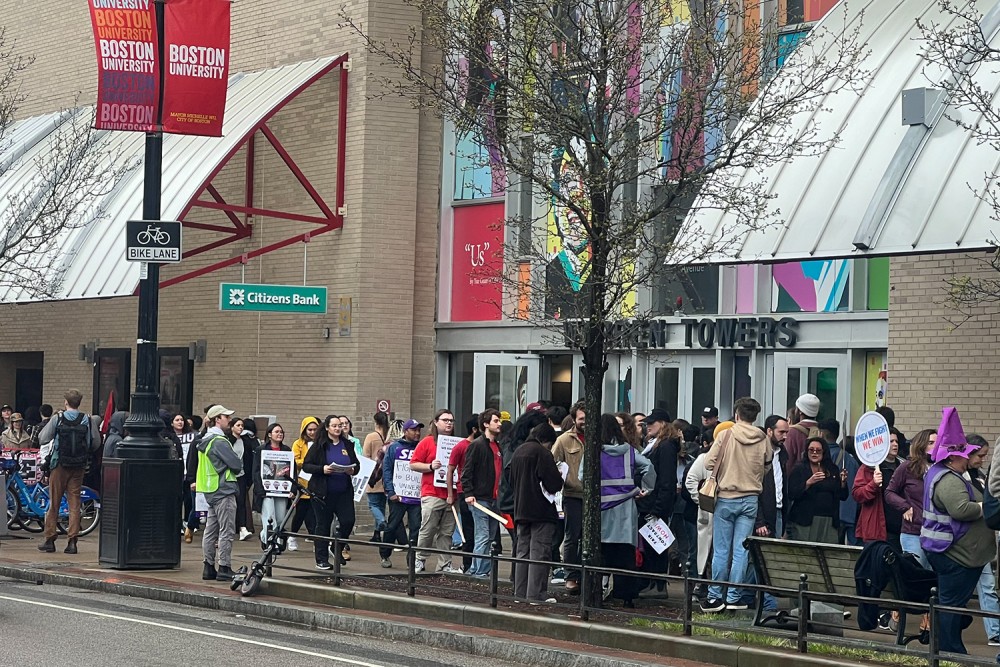What’s behind the grad student strike at Boston University?
My students are being financially exploited—based on a social imaginary that doesn’t reflect the realities of higher ed.

Graduate workers at Boston University on strike for better protections and pay in April. (Photo by Pacamah / Wikimedia Commons)
For the past several weeks, hundreds of graduate student workers at Boston University, where I am on the faculty, have been on strike. The strike follows several years of union organizing—and a much longer history of frustration with the failure of grad worker pay and benefits to keep up with the cost of living.
Given that I work for a theology school and seminary attached to a private university, one might assume that my biggest existential concerns have to do with ideological polarization or church decline. But those are not the things that keep me up at night. Rather, my daily work of teaching, writing, and administration is shaped by worry for the bodily wellbeing of students. They face both the grind of academic pressure and the weight of material poverty. While current discourse focuses on ideological conflict on university campuses, students face more mundane threats as well: threats of creeping exploitation.
Boston University students are far from alone in this situation. Grad workers have been unionizing across the country. Contributing factors include a national housing crisis, runaway medical and educational debt, and increasing wealth inequality. Grad workers in particular are reacting as well to stagnating pay even as administrative budgets and high-profile centers and programs expand. They are also responding to a 2016 National Labor Relations Board decision that recognized the organizing and collective bargaining rights of grad workers at private universities.




